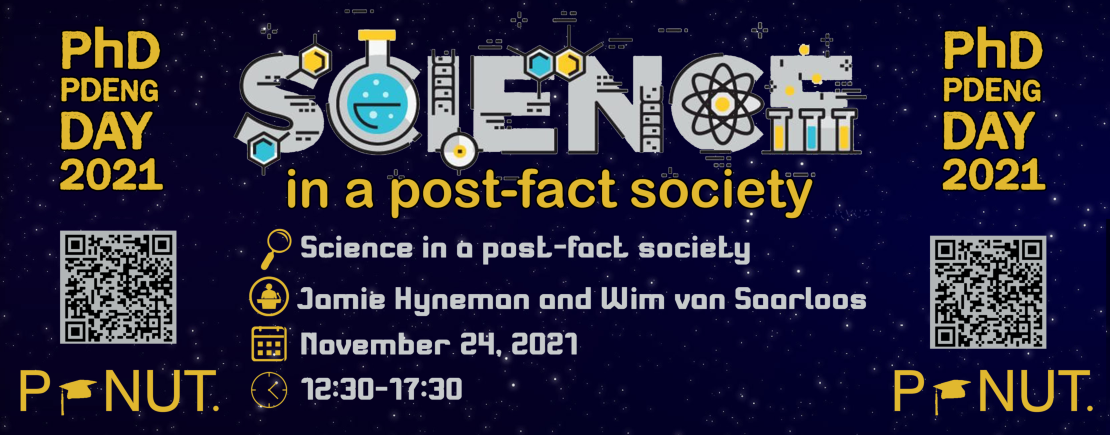

Popular media propagates that we are living in a post-fact (or post-truth) society. In such a society, facts are reduced to irrelevant side notes and the new "truth" established from false beliefs professed by prominent individuals (e.g. via social media). Consider the recent example of social media buzzing with false reporting about the coronavirus, or the allegations of voter fraud in the 2020 USA election. Another example includes convincing fictional videos created using AI-based video and image manipulation technologies (deepfake). Common good, trust, responsibility, ethics, and civic engagement are under attack.
This year's edition of the PhD & PDEng Day focuses on the role of science in a post-fact society. Topics of discussion include evidence-informed policy-making, young scientists' role and perspectives, and the importance of science for innovation. Let's dive into how scientific methods were used to test the validity of rumors, myths, adages, and web footage such as videos and news stories. Can we still rely on truths, norms, rules, and traditions as the currency on which to base decisions for the future? How can science and innovation stay relevant in a post-fact society? Should anything change in the interaction between science and society? Will this new perspective be a tipping point towards 'trust in absolute truths' as a fundamental citizen right? What about the technological trend to turn many aspects of our lives into quantifiable data (datafication)?
The P-NUT PhD & PDEng Day will cover interesting keynote talks, discussions, and parallel workshops. We conclude the day with networking drinks and a dinner. The program can be found here. Notice that the final program is still under development and the schedule is subject to change.
Have also a look at previous year's PhD day (2019) (2020).
Interesting into helping us with organizing the PhD & PDeng Days? Let us know by sending an email to p-nut@utwente.nl.
